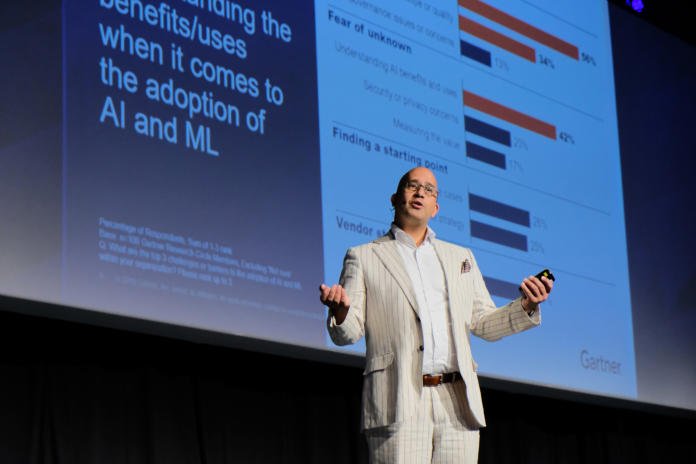“More organisations are adopting artificial intelligence (AI). Fourteen percent of global CIOs have already deployed AI and 48% will deploy it in 2019 or by 2020, according to Gartner’s 2019 CIO Agenda survey.
“While adoption is increasing, some organisations are still questioning the business impact and benefits. Today, we witness three barriers to the adoption of AI,” says Brian Manusama, Senior Director Analyst, Gartner.
The first barrier is skills. Business and IT leaders acknowledge that AI will change the skills needed to accomplish AI jobs. Fifty-six percent of respondents said that acquiring new skills will be required to do both existing and newly created jobs, according to a Gartner Research Circle survey.
Today, AI can evaluate X-rays like human radiologists. As this technology advances beyond research settings, radiologists will shift their focus to consulting with other physicians on diagnosis and treatment, treating diseases, performing image-guided medical interventions and discussing procedures and results with patients.
Fear of the unknown is No. 2 barrier of AI
The second top challenge is the fear of the unknown. Forty-two percent of respondents aren’t fully understanding AI benefits and use in the workplace. Quantifying the benefits of AI projects poses a major challenge for business and IT leaders. While some benefits could be well-defined values, such as revenue increase or time saved, others, such as customer experience, are difficult to define precisely or to measure accurately.
Success depends on considering both tangible and intangible benefits, and determining how to meaningfully quantify them. Gartner forecasts that by 2024, 50% of AI investments will be quantified and linked to specific key performance indicators to measure return on investment.
The third challenge is the full data scope or the data quality derived from AI. Successful AI initiatives depend on a large volume of data from which organisations can draw information about the best response to a situation. Organisations are aware that without sufficient data — or if the situation encountered does not match past data — AI falters. Others know that the more complex the situation, the more likely the situation will not match the AI’s existing data, leading to AI failures.
The more organisations implement AI, the more jobs it creates and these jobs will fall into two categories — jobs directly related to implementing and developing AI within the organisation and jobs created by the opportunities for scale that AI provides.
Overall, AI will not eliminate jobs. By 2020, AI will become a net-positive job motivator, eliminating 1.8 million jobs while creating 2.3 million jobs.















